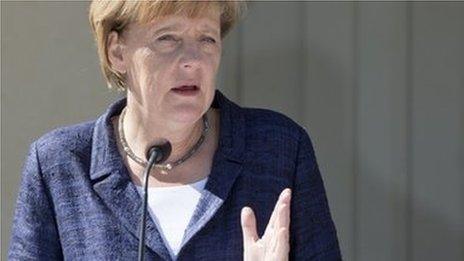Cameron vows to oppose Juncker EU boss candidacy 'to the end'
- Published
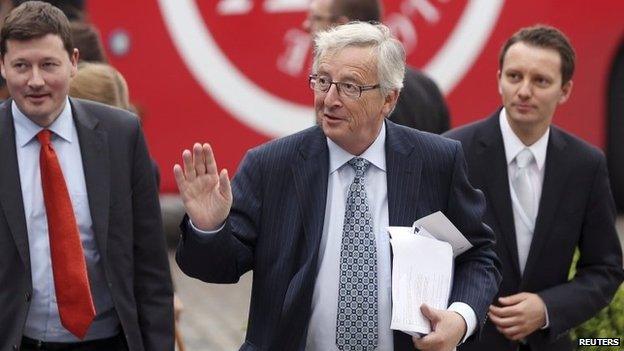
Jean-Claude Juncker is affiliated to the same centre-right grouping of MEPs as Angela Merkel's party
UK PM David Cameron has pledged to oppose "right up to the end" the candidacy of former Luxembourg leader Jean-Claude Juncker to be European Commission president.
He has said Mr Juncker is too pro-federalist and the appointment would make EU reforms harder to achieve.
"If you are for reform then you need to stand up and fight for reform," he told a Downing Street press conference.
But Mr Juncker has the backing of German Chancellor Angela Merkel.
MEP Elmar Brok, who belongs to Mrs Merkel's Christian Democrats, said: "We have no possibility other than to support Mr Juncker."
Under current rules, it is for the heads of government of EU member states, who meet in the European Council, to agree on a candidate to head the commission and then submit their proposal to the European Parliament for its approval.
And they now have an explicit requirement to make their proposals after having "taken into account the elections to the European Parliament".
Mr Juncker is the candidate affiliated to the EPP - the centre-right grouping of MEPs.
Although the EPP lost seats at the recent European elections, it remains the largest group in the parliament - but Mr Cameron suggested that MEPs were seeking to foist their favoured candidate on the leaders of the member states.
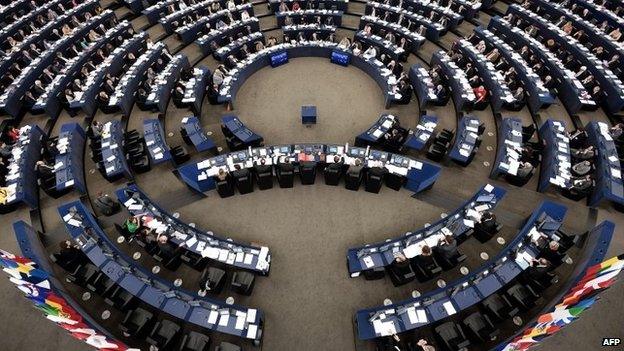
The European Parliament gained new powers in the Lisbon Treaty
Reporters had asked him whether he had admitted defeat in his efforts to block the former Luxembourg's leader's candidacy in light of Mrs Merkel's continued support for him.
Mr Cameron said he would continue to defend the "very important principle" that it should be the leaders of EU member states, not the European Parliament, to propose a candidate for the job.
"I will go on opposing this process of having someone put upon us by the European Parliament... right up to the end," he said.
"There is absolutely no question of changing my view about that."
He added: "My view is very clear and I think it is up to others to make their views clear.
"If you are up for reform, you need to stand up and fight for reform. If you are against transferring power from the European Council to the European Parliament you have to stand up and say so.
"I am very clear where I stand. Others will have to make their own decisions."
'Fighting bureaucracy'
Mr Brok said that the German chancellor "would like to accommodate Mr Cameron, because we believe that Britain is an important part of the EU".
He said the party was keen to find solutions to the problems with the EU institutions identified by the British government.
"We have some things in common - fighting bureaucracy, more competitiveness, less legislation," Mr Brok said.
"On that basis we could come to a compromise if Mr Cameron would not just stick to this question of Mr Juncker where we have no possibility other than to support Mr Juncker."
The Conservative leader has said his party will renegotiate the UK's relationship with the EU if it wins the 2015 general election before putting the new settlement to voters in a referendum in 2017.
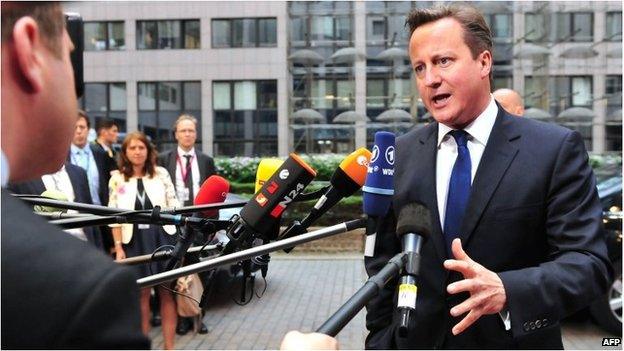
Mr Cameron argues that Mr Juncker represents an EU elite favouring "ever-closer union"
Mr Cameron recently made a direct appeal to voters in Ireland, France and Germany, external to back a candidate who will change the way Brussels is run.
He has called for "bold leadership" for the European Commission.
Both the EPP and the social democrats, the main centre-left group in the European Parliament, have joined forces to back Mr Juncker.
A final decision on who will get the top job at the commission is not expected until EU leaders hold a summit on 26 and 27 June - at the earliest.
The decision will be made by a qualified majority vote, meaning that no single country can veto the choice.
BBC Europe correspondent Chris Morris said Mr Cameron would not have enough support to muster a blocking minority.
- Published17 June 2014
- Published13 June 2014
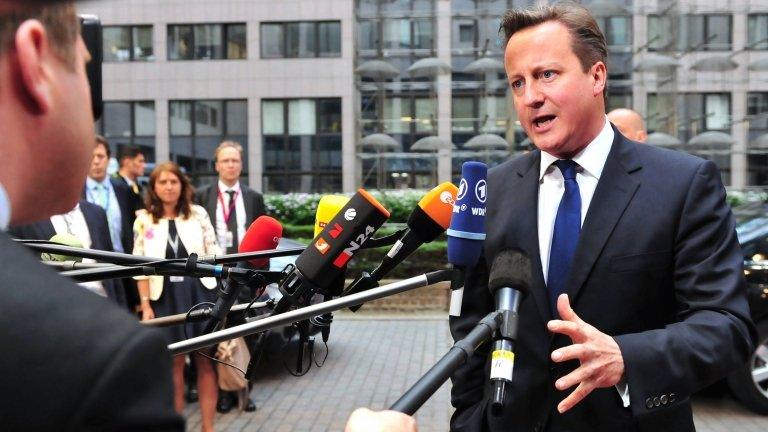
- Published10 June 2014
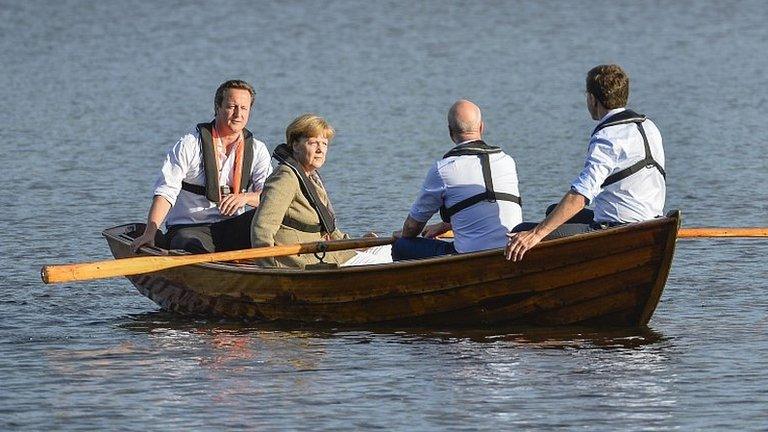
- Published24 June 2014
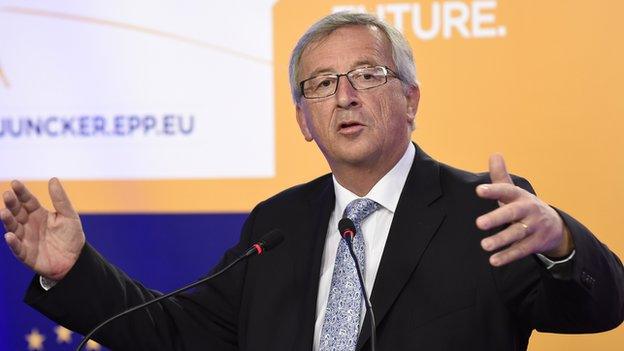
- Published10 June 2014
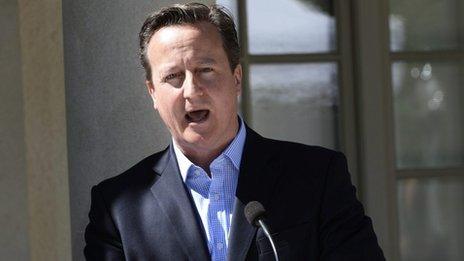
- Published10 June 2014
